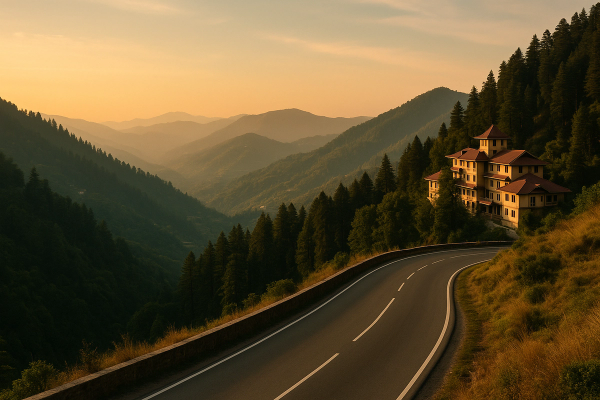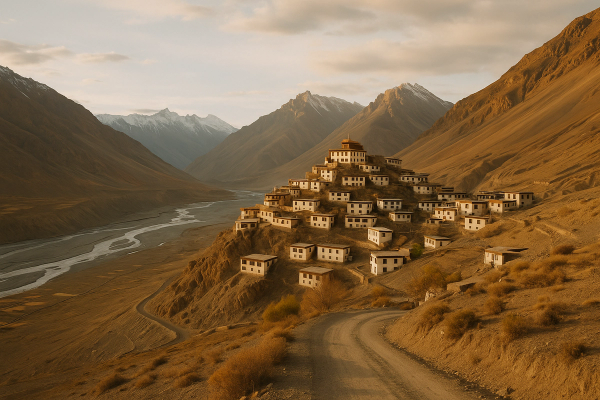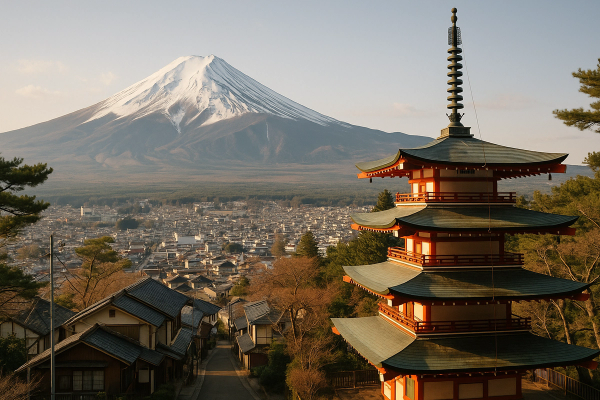
Embrace the Adventure: Essential Safety Tips for Solo Female Travelers in Southeast Asia#
Picture this: misty mountains meeting turquoise waters, the fragrant steam rising from a bowl of pho, the intricate beauty of ancient temples, the vibrant chaos of night markets. Southeast Asia is a kaleidoscope of cultures, landscapes, and experiences that beckons travelers from across the globe. And guess what? It’s an incredible region for solo female travel. But let's be real, stepping out alone into the beautifully unfamiliar requires a bit of savvy. This guide is packed with essential safety tips for solo female travelers in Southeast Asia, drawn from experience and designed to empower you to explore confidently and safely.¶
Going solo doesn't mean being reckless; it means being prepared. It’s about equipping yourself with knowledge so you can focus on the magic – the connections, the discoveries, the sheer joy of adventure. So, let’s dive into making your Asia travel dream a safe and unforgettable reality.¶
Why Southeast Asia is a Fantastic Choice for Solo Female Adventures#
Before we get into the nitty-gritty of safety, let's celebrate why Southeast Asia (SEA) is such a magnet for travelers, especially women venturing out on their own. What makes it so special?¶
- Well-Trodden Backpacker Trail: Decades of travelers have forged paths across Thailand, Vietnam, Cambodia, Laos, Malaysia, Indonesia, the Philippines, and beyond. This means excellent infrastructure – hostels, guesthouses, transport networks – geared towards independent travelers.
- Affordability: Your travel budget stretches significantly further here compared to many Western countries, allowing for longer trips and more experiences without breaking the bank.
- Incredible Diversity: From hyper-modern cities like Singapore and Kuala Lumpur to remote hill tribes in Northern Thailand or pristine beaches in the Philippines, the variety is staggering.
- Warm Hospitality: Generally, cultures across SEA are incredibly welcoming and hospitable. A smile goes a long way!
- Ease of Connection: It's remarkably easy to meet other travelers (if you want to!) in hostels, on tours, or even on buses, offering companionship and shared experiences.
However, this popularity also means being aware of potential downsides like tourist scams and petty theft in certain areas. That's where smart solo female travel safety tips come in.¶
The Foundation: Your Solo Travel Safety Mindset#
Before diving into specific tips, let's establish the core principles of staying safe anywhere in the world, particularly relevant for female travel in SEA:¶
Trust Your Gut: This is your most powerful tool. If a situation feels off, if someone makes you uncomfortable, remove yourself. Don't worry about seeming rude; your safety is paramount.
- Situational Awareness: Pay attention to your surroundings. Avoid walking alone late at night in poorly lit areas. Keep valuables secure and out of sight. Be aware of who is around you, especially in crowded places.
- Project Confidence: Walk purposefully, even if you're lost. Looking confident and aware makes you less likely to be targeted.
- Research is Key: Understand the local culture, common scams, and safe/unsafe neighborhoods before you arrive.
- Moderation: Enjoy the nightlife, but be mindful of your alcohol intake. Keep your wits about you.
Accommodation Safety: Choosing Your Sanctuary#
Where you lay your head at night significantly impacts your sense of security. Prioritizing accommodation safety is crucial for peace of mind during your solo travel adventure.¶
Research, Research, Research!#
Don't just book the cheapest option. Dive into reviews on platforms like Hostelworld, Booking.com, Agoda, and travel blogs. Pay close attention to reviews specifically from other solo female travelers.¶
- Look for comments on location safety (well-lit streets, proximity to transport).
- Check feedback on staff helpfulness and presence (24-hour reception is a plus).
- Note mentions of security features like lockers (bring your own padlock!), key card access, and overall cleanliness.
Types of Accommodation & Safety Considerations#
| Accommodation Type | Pros for Solo Females | Safety Cons & Mitigation | |
|---|---|---|---|
| Hostels (Female-Only Dorms) | Easy to meet others, budget-friendly, often have organized tours. | Shared space means less privacy; ensure good lockers. Choose reputable hostels with strong security reviews. | |
| Hostels (Mixed Dorms) | More availability, sometimes cheaper. | Less privacy, potential for feeling uncomfortable. Opt for smaller dorms if possible, read reviews carefully. | |
| Guesthouses/Budget Hotels | More privacy, often family-run (local insights). | Security can vary; check locks, door strength, window access. May be more isolated. | |
| Mid-Range/Boutique Hotels | Better security features, more amenities, private bathrooms. | More expensive, potentially less social interaction. | Choose hotels in safe, central locations with good lighting. |
Practical Accommodation Safety Tips#
- Location Matters: Opt for places in central, well-lit areas, especially if you plan on being out after dark. Check Google Street View beforehand.
- Secure Your Room: Always lock your door, even when you're inside. Consider bringing a rubber door wedge for extra security – it’s small, light, and effective.
- Don't Announce You're Alone: Avoid mentioning you're traveling solo to strangers you've just met, especially outside the hostel/hotel environment. Be vague if asked directly ("I'm meeting friends later").
- Locker Up: Use lockers in dorms for valuables (passport, electronics, cash). Carry essentials on you when leaving the room.
- Reception Savvy: Don't say your room number out loud at reception if others are nearby.
Transport Tips: Navigating Southeast Asia Like a Pro#
Getting from A to B is a huge part of the SEA experience, from chaotic city tuk-tuks to scenic train journeys. These transport tips will help you navigate safely.¶
General Transport Safety#
- Book Ahead (Especially for Long Journeys): Use reputable booking platforms (like 12Go Asia, Baolau, or directly with established bus/train companies) or your accommodation's trusted travel desk. This avoids potential scams at dodgy street-side agencies.
- Trust Ride-Sharing Apps: Apps like Grab (ubiquitous in most of SEA) are generally safer than hailing random taxis or tuk-tuks. You get upfront pricing, driver details, and GPS tracking you can share.
- Keep Valuables Secure: On buses, trains, or ferries, keep your main backpack stowed securely (sometimes locked if possible) and your daypack with valuables (passport, phone, wallet) on you at all times, preferably in front.
- Arrive During Daylight: If possible, schedule long journeys to arrive at your destination during daylight hours. Navigating a new place is much easier and safer when it's light out.
Specific Transport Modes#
Taxis & Tuk-Tuks:¶
- If not using an app, always agree on the price before getting in. Ask your accommodation for typical fares.
- Insist on the meter in taxis where available. If the driver refuses, get out and find another.
- Have small change ready to avoid hassles with payment.
- Be wary of drivers offering unsolicited tours or detours to gem shops/tailors – it's often a commission scam.
Buses & Trains (Especially Overnight):¶
- Choose reputable companies known for safety and comfort.
- Secure your large bag underneath or in designated luggage areas. Keep your daypack with valuables on your lap or by your feet.
- Consider booking a lower bunk on sleeper trains/buses for easier access and potentially more security.
- Be cautious accepting food or drink from strangers on long journeys.
Motorbike Taxis & Rentals:¶
- Always wear a helmet. Insist the driver provides one, or better yet, consider buying your own cheap one locally if you plan on using them often.
- Rent a scooter only if you are an experienced rider and have the correct license and insurance. Accidents are common. Check the bike thoroughly before renting.
- Understand local traffic rules (or lack thereof!). Traffic can be chaotic.
Ferries & Boats:¶
- Choose established ferry operators. Avoid overloaded boats.
- Check weather conditions before island hopping. Journeys can be cancelled or become rough.
- Locate life jackets upon boarding.
My Tip: For peace of mind on overnight buses or trains, I often use a small retractable cable lock to secure my daypack zipper to my seat or bunk railing. It's a simple deterrent.
Cultural Awareness: Respecting Traditions, Enhancing Safety#
Understanding and respecting local culture isn't just polite; it's integral to your safety and enriching your Asia travel experience. Blending in (to a degree) and showing respect can deter unwanted attention.¶
Dress Appropriately#
- Modesty is Key: Particularly in temples, religious sites, and rural areas, cover your shoulders and knees. Carry a scarf or sarong – it's lightweight and versatile for covering up when needed.
- Observe Locals: See what local women are wearing in different settings (cities vs. beaches vs. villages) and take cues.
- Beachwear is for the Beach: Avoid walking around town or eating in restaurants in just your bikini or swim shorts, even in coastal areas.
Behavior and Interaction#
- Learn Basic Phrases: 'Hello,' 'Thank you,' and 'Excuse me' in the local language go a long way in building rapport.
- Public Displays of Affection: Generally frowned upon in most SEA cultures.
- Saving Face: Avoid raising your voice or causing public confrontation. Politeness and calm negotiation are more effective.
- Respect Elders and Authority: Show deference where appropriate.
- Pointing Feet: In many Buddhist cultures (Thailand, Cambodia, Laos), pointing your feet at people or religious icons is considered highly disrespectful.
Alcohol and Nightlife#
- Know Your Limits: Drink responsibly, especially when alone. Keep an eye on your drink.
- Plan Your Return: Know how you'll get back to your accommodation before you go out. Use trusted transport options.
- Be Aware of Local Laws: Drug laws in SEA are extremely strict, with severe penalties.
Spotting and Avoiding Common Scams#
While most locals are honest, tourist scams to avoid exist, particularly in high-traffic areas. Awareness is your best defense.¶
- The 'Temple is Closed' Scam (Bangkok Classic): A friendly local approaches, tells you the attraction you're heading to is closed for a special ceremony, and offers to take you on a cheap tuk-tuk tour to other temples/gem shops/tailors. Politely decline and check the official entrance yourself.
- Inflated Transport Fares: Always agree on price beforehand or use metered taxis/ride-sharing apps.
- Motorbike Rental Damage Scam: Thoroughly inspect rental bikes/scooters before renting. Take photos/videos of any existing damage with the owner present.
- Border Crossing 'Fees': Research official visa costs and procedures beforehand. Only pay fees at official counters and get receipts. Be wary of 'helpers' demanding extra money.
- Fake Police/Authority Figures: Real police rarely approach tourists randomly for fines. If approached, ask to see identification and suggest going to the official police station.
- Distraction Theft: Be extra vigilant in crowded markets, bus stations, or tourist spots. Someone might 'accidentally' bump into you while an accomplice picks your pocket or snatches your bag.
Rule of Thumb: If something sounds too good to be true (like an incredibly cheap tour or a 'guaranteed' winning gemstone), it probably is. Be skeptical of unsolicited offers.
Staying Connected: Your Digital Safety Net#
Staying connected is vital for solo travelers – for navigation, booking, research, and keeping loved ones updated. Make it a priority.¶
- Get a Local SIM/eSIM: Cheap and readily available at airports and local shops. Having data allows you to use maps, translation apps, ride-sharing services, and make local calls easily. eSIMs are increasingly convenient if your phone supports them.
- Download Offline Maps: Apps like Google Maps and Maps.me allow you to download maps for offline use – invaluable when you don't have signal.
- Share Your Itinerary: Leave a copy of your rough itinerary (including flight details, accommodation names/addresses) with someone reliable back home. Check in regularly via message or call.
- Emergency Contacts: Save local emergency numbers (police, ambulance) in your phone. Also, have an ICE (In Case of Emergency) contact clearly listed.
- Useful Apps: Translation apps (Google Translate), currency converters, ride-sharing apps (Grab), accommodation booking apps, airline apps.
- Consider a VPN: A Virtual Private Network encrypts your internet connection, especially useful when using public Wi-Fi networks in cafes or hostels, protecting your data from potential hackers.
- Portable Power Bank: Keep your phone charged! A lifesaver on long travel days or in areas with unreliable electricity.
Health, Well-being, and Insurance#
Your physical well-being is paramount. Don't neglect basic health precautions.¶
- Travel Insurance is NON-NEGOTIABLE: Get comprehensive travel insurance covering medical emergencies, evacuation, theft, and cancellations. Read the policy carefully. World Nomads, SafetyWing, and Allianz are popular choices, but research what's best for your needs and origin country.
- Pre-Trip Health Check: Consult your doctor or a travel clinic 4-6 weeks before departure regarding necessary vaccinations (e.g., Hepatitis A/B, Typhoid, Tetanus) and malaria precautions if applicable to your itinerary.
- Food & Water Safety: Stick to busy food stalls (high turnover), eat freshly cooked, hot food. Be cautious with salads or pre-cut fruit unless you know it's washed in purified water. Drink bottled or filtered water; avoid tap water.
- Stay Hydrated: The tropical climate demands constant hydration. Carry a reusable water bottle and refill it safely.
- Basic First-Aid Kit: Pack essentials like plasters, antiseptic wipes, pain relievers, motion sickness medication, and any personal prescriptions.
- Listen to Your Body: Don't push yourself too hard, especially in the heat. Get enough rest.
Embracing the Solo Journey & Connecting Safely#
Solo travel doesn't have to mean being alone all the time (unless you want it to!).¶
- Hostels & Guesthouses: Great places to naturally meet fellow travelers. Join free walking tours or hostel activities.
- Group Tours & Activities: Day trips or cooking classes are fun ways to socialize and explore.
- Be Open but Cautious: It's wonderful to connect, but maintain healthy boundaries. Don't overshare personal information too quickly.
- Confidence Grows: It's okay to feel nervous initially. Every successful navigation, every friendly interaction builds confidence. Celebrate your courage!
Traveling Responsibly in Southeast Asia#
Being a safe traveler also means being a responsible one. Your choices impact the places and people you visit.¶
- Support Local Economies: Eat at local restaurants, buy souvenirs from artisans, use local guides (ensure they are treated fairly).
- Respect Wildlife: Avoid unethical animal tourism attractions (e.g., elephant riding, drugged tigers). Visit reputable sanctuaries committed to genuine animal welfare.
- Minimize Plastic Waste: Carry a reusable water bottle, shopping bag, and perhaps reusable cutlery/straw. Refuse single-use plastics where possible.
- Bargain Respectfully: Haggling is common in markets, but do it with a smile and aim for a fair price, not the absolute lowest possible.
- Ask Before Photographing: Be respectful when taking photos of people, especially children. Ask for permission.
Final Thoughts: Your Southeast Asia Adventure Awaits!#
Southeast Asia is an immensely rewarding region for solo female travelers. While it's essential to be aware and prepared, don't let safety concerns overshadow the incredible experiences that await. By implementing these solo female travel safety tips for Southeast Asia, trusting your intuition, and embracing cultural nuances, you're setting yourself up for an empowering and unforgettable journey.¶
The blend of adventure, culture, affordability, and connection makes Asia travel, particularly solo, a truly special experience. Pack your bags (and your common sense!), stay aware, be open, and get ready to create memories that will last a lifetime.¶
Have you traveled solo in Southeast Asia? Share your own safety tips or favorite experiences in the comments below! Or, if you're planning your trip, check out more travel inspiration and guides.¶














